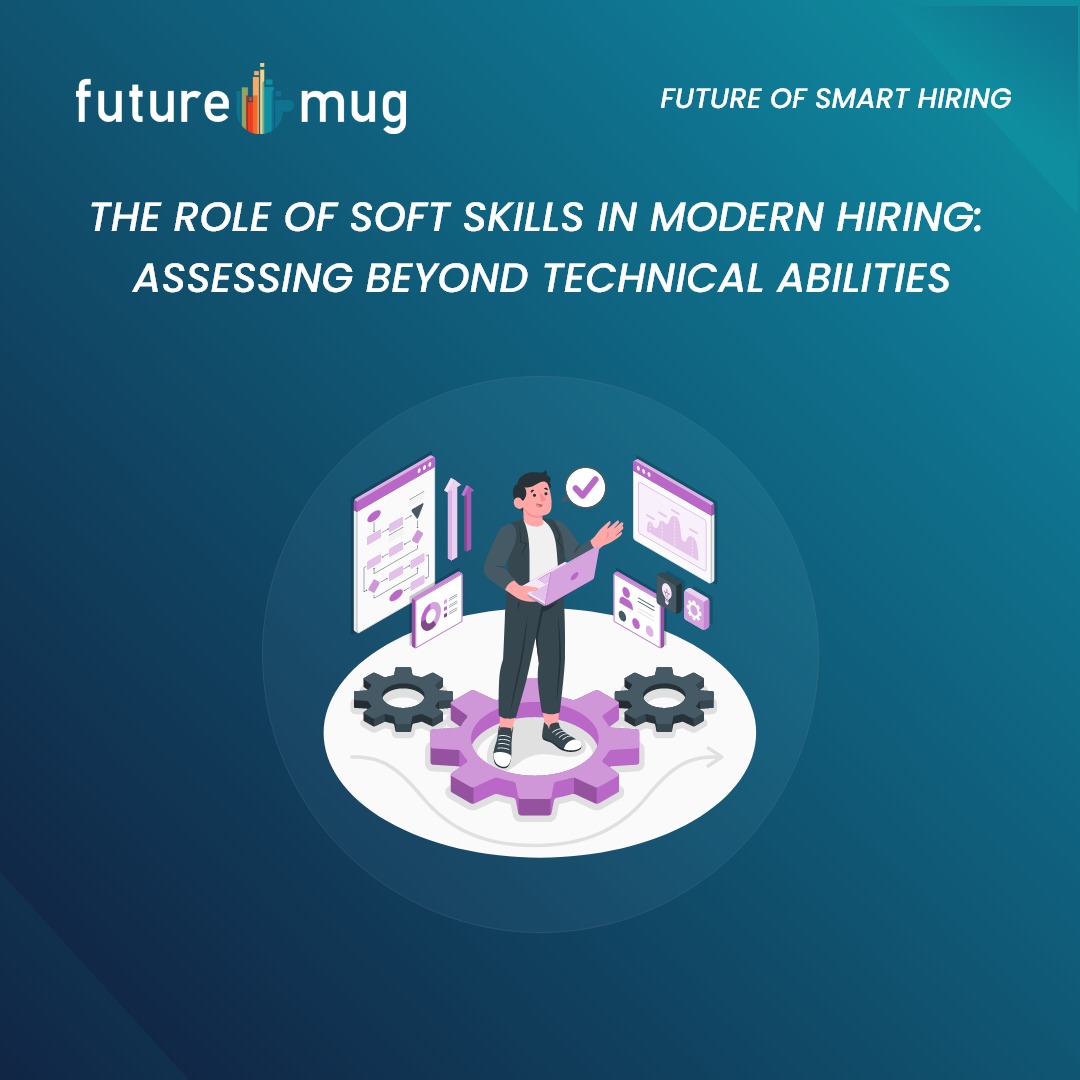
The Role of Soft Skills in Modern Hiring: Assessing Beyond Technical Abilities

With the ever-changing requirements of the job sector, technical and job-specific skills alone can take you only so far in your career. Even from an organizational standpoint, an employee who possesses good interpersonal and cognitive skills is more desirable than one who doesn’t. Possessing the requisite soft skills can often become the differentiator between candidates during the hiring process, as they will fit better within the company culture.
To identify such candidates and assess soft skills, the hiring process needs to undergo a change as well. It should be more comprehensive and give due merit to the soft skills where required.
The Importance of Soft Skills

Technical skills are essential for performing job-specific tasks well. But beyond these tasks, employees need to work well within and outside their teams, adapt well to the changing needs of the organization, and build good relationships with their colleagues and superiors. For this to happen, they need to possess skills such as communication, teamwork, problem-solving, and emotional intelligence. This collaboration and healthy relationships make the employee more valuable and will help him thrive in the organization and attract excellent learning and growth opportunities. When more employees with excellent soft skills join the organization, it fosters a collaborative environment and results in a vibrant and inclusive workforce.
The following are a few ways in which soft skills add value to organizations:
- Creates a collaborative environment – Employees who are strong in the soft skills department communicate well with others, resolve conflicts amicably, and foster a progressive and growth-oriented environment. Soft skills are also a great asset when working with cross-functional or multi-geographic teams.
- Greater adaptability and smooth problem-solving – Adaptability to change, critical thinking, and efficient problem-solving are all hallmarks of employees who possess soft skills. These employees add so much value to the organization and add to its resilience and agility.
- Builds leadership capabilities – employees who demonstrate strong soft skills often become great leaders. They can motivate, inspire, and lead their peers to grow in their roles and achieve even more challenging goals.
- Better customer relations – Employees with good interpersonal skills perform well in customer-facing roles. They also grasp and deal with the needs of the customers better. Thus, organizations can enjoy good customer relationships and greater customer loyalty.
How to integrate the assessment of soft skills into the hiring process

Assessing soft skills can be quite tricky. If not done properly, it can lead to the loss of time and effort with no results to show. Organizations should clearly spell out the skills that they are looking for in their candidates, including soft skills. The next step is to include sufficient and appropriate assessment mechanisms in their hiring process to evaluate candidates based on these skills.
The following are three of the most common assessment tests used by companies to measure soft skills during hiring.
- Psychometric assessments – These assess a range of cognitive and personality traits in the candidate, which in turn can indicate how they fare on desirable soft skills such as emotional intelligence, behavioural styles, and aptitude.
- Situational tests – These tests involve presenting a hypothetical situation to the candidate and asking them to resolve it in the best way possible. Situational tests can offer insights into the candidates’ decision-making skills, conformity to what is right and ethical, and other cognitive skills. Situational tests also help to understand how a candidate will fit into the culture of the organization.
- Behavioural interviews – These interviews are designed to gauge how candidates have handled particular situations in the past. This is a good way to gain insights into their soft skill repository. It often brings to light the problem-solving, critical thinking, and interpersonal abilities of the candidate.
Resources
Third party assessment service providers like futuremug enable organizations to streamline their assessments and customize them to assess requisite skills, including soft skills. To learn how the futuremug assessment service works, refer to the following page on our website.
https://futuremug.com/en-in/best-online-assessment-services-company
In addition, we also offer assessment platforms to our clients, where they can design their own assessment methodology and include assessments of soft skills and other interpersonal skills.
https://futuremug.com/en-in/best-candidate-assessment-platform-online
The following blog includes pro-tips from company executives across various industries on how to effectively assess soft skills during hiring.
https://talentculture.com/blog/how-to-assess-soft-skills-tips-from-leaders/
It is safe to say that companies that value soft skills, build a much stronger and more resilient work force over time. They use AI and modern assessment tools and platforms to integrate soft skill assessment into their hiring process. Their organizations fare better during uncertainties, handle changes better, and are more dynamic and agile to adopt innovations and advancements in their respective fields. They put customers first and enjoy their loyalty. All of these together go a long way towards improving the revenues and success of the organization.